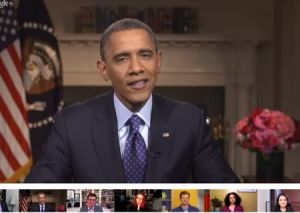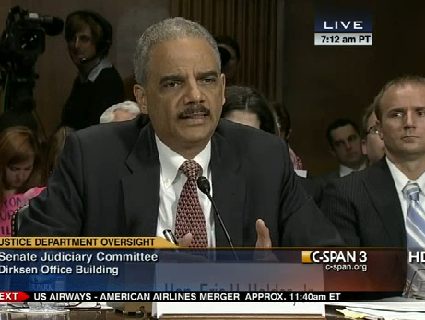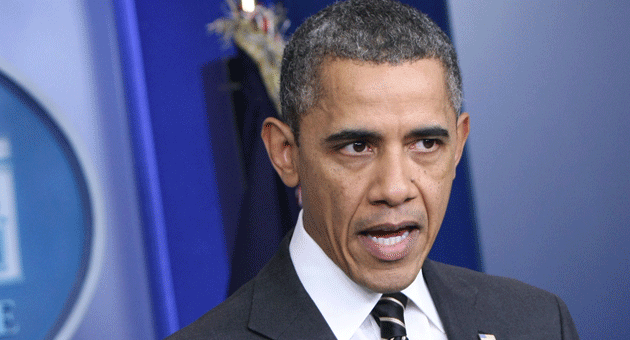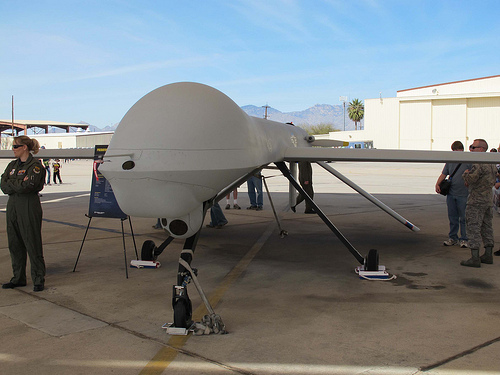
Obama discussing drones in his 2013 Googe+ Fireside Hangout.YouTube
If you want to keep something a secret, you probably shouldn’t brag about it.
That may seem obvious. But the Obama administration’s habit of singing the virtues of its supposedly secret targeted killing program is the reason a panel of three federal judges on the DC Circuit ruled against the government on Friday, finding that the CIA cannot continue to claim it has not acknowledged its involvement in the use of drones in targeted killings. Quoting newly minted CIA Director John Brennan, former CIA Director Leon Panetta, and President Barack Obama himself, Judge Merrick Garland wrote that “it is neither logical nor plausible” for the CIA to say it would reveal anything not already public to admit that the Agency “at least has an intelligence interest” in such strikes. “The defendant is, after all, the Central Intelligence Agency,” the judges added. Friday’s ruling reverses a previous one from 2011 in which a lower court ruled in favor of the government.
Since 2010, the ACLU has been seeking information from the CIA on when, where, and against whom drone strikes can be authorized, and how and whether the US ensures compliance with international law restricting extrajudicial killings. The CIA had argued that “no authorized CIA or Executive Branch official has disclosed whether or not the CIA possesses records regarding drone strikes or whether or not the CIA is involved in drone strikes or has an interest in drone strikes.” According to the CIA’s argument, just because high ranking officials can’t stop talking about how targeted killing is effective, only kills bad guys, and always complies with the law doesn’t mean it’s not a secret.
This doesn’t mean the CIA will be releasing the documents. The Agency will have to explain and list which documents it has, and either release them or find another reason to argue why they can’t be released—and there are national security exemptions to the Freedom of Information Act the Agency could use to avoid having to hand them over. “It’s only a small step forward but an important one,” says Jameel Jaffer, the ACLU attorney who argued the case. “It will also make it more difficult for government officials to deflect questions about the program.”















